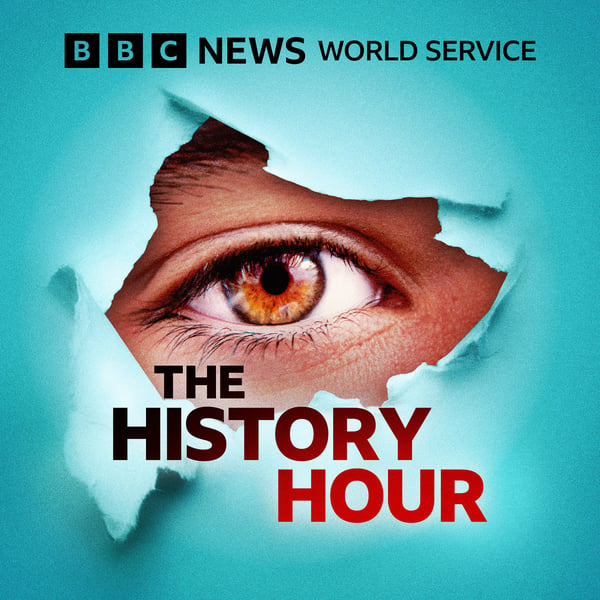Zambia celebrates independence and the invention of bubble tea
The History Hour
BBC
4.4 • 879 Ratings
🗓️ 25 November 2023
⏱️ 52 minutes
🧾️ Download transcript
Summary
Max Pearson presents a collection of this week’s Witness History episodes from the BBC World Service.
This week, we’re looking at the birth of a new African nation – Zambia - in 1964, and find out how the country got its name. We also learn more about life after independence with our guest Dr Alfred Tembo, head of history of the University of Zambia.
Elsewhere, two survivors of a series of terrifying gun attacks in Mumbai talk about their experiences. And there’s a look back to 2003, when the worst heatwave in centuries caused thousands of deaths across Europe, and led to a health crisis in Paris.
Plus, we hear extracts from the lost memoirs of Manchester United goalkeeper Les Sealey. He recorded them before his death and the tapes were discovered years later.
And finally, the invention of bubble tea, a creation that would change the tea drinking world. The first cup was sold in a tea shop in Taiwan in 1987.
Contributors:
Mulenga Kapwepwe – daughter of Simon Kapwepwe, fighter for Zambia’s independence Dr Alfred Tembo – head of history, University of Zambia Devika Rotawan – survivor of gun attack in Mumbai Arun Jadhav – policeman and survivor of gun attack in Mumbai Dr Patrick Pelloux - emergency doctor at St Antoine Hospital in Paris Les Sealey – former Manchester United goalkeeper Liu Han-Chieh – tea leaf seller and shop owner Lin Xiuhu – developer of bubble tea
(Photo: Celebrations after Zambian election, 1991. Credit: Walter Dhladhla/AFP via Getty Images)
Transcript
Click on a timestamp to play from that location
| 0:00.0 | The Global Story is your new daily deep dive into one big news story and it's coming soon |
| 0:07.1 | Monday to Friday from the BBC World Service. |
| 0:10.6 | Search for the Global Story wherever wherever you get your BBC Podcasts to find out more. |
| 0:17.0 | Hello and welcome to the History Hour podcast from the BBC World Service with me |
| 0:24.6 | Max Pearson the past brought to life by those who were there. Coming up first-hand |
| 0:29.8 | memories of terrifying gun attacks in the Indian City of Mumbai in 2008. |
| 0:35.0 | People were so panicked that they were pushing other people trying to save their lives. |
| 0:39.0 | Some people were getting hit in the head. |
| 0:41.0 | There was blood splattering and people were lying injured everywhere. |
| 0:46.0 | Also, when Europe suffered under record temperatures. |
| 0:50.6 | What happened with the 20-03 heat wave was a real big bang on the fact that global warming |
| 0:56.8 | kills, has killed and will kill. |
| 0:59.6 | Plus the lost memoirs of a footballing legend and the invention of bubble tea. |
| 1:06.2 | But before that we're going back to the 1960s and the era of rolling back colonial rule across Africa. Britain, France, Spain, Portugal, Germany and Italy |
| 1:16.7 | had all at one time carved up the continent, but by the middle of the 20th century the winds of change |
| 1:22.0 | were blowing. In 1964, Zambia became a republic. It was the |
| 1:26.9 | ninth African state to leave British colonial rule. Laura Jones tells the story. |
| 1:31.3 | This is indeed a time to rejoice in the whole of Zambia and in the whole of Africa and all over the world |
| 1:40.0 | because another new baby has been added to the family. |
| 1:45.0 | That's just a taste of the celebrations which went on through the night of October the 23rd, |
| 1:51.0 | 1964. Independence would come at midnight on the 24th. President Kenneth Cowunder was |
| 1:57.4 | about to take full charge of Zambia. He and his childhood friend Simon Capwepeway had been leaders of the fight to break away from Britain. |
... |
Please login to see the full transcript.
Disclaimer: The podcast and artwork embedded on this page are from BBC, and are the property of its owner and not affiliated with or endorsed by Tapesearch.
Generated transcripts are the property of BBC and are distributed freely under the Fair Use doctrine. Transcripts generated by Tapesearch are not guaranteed to be accurate.
Copyright © Tapesearch 2025.

